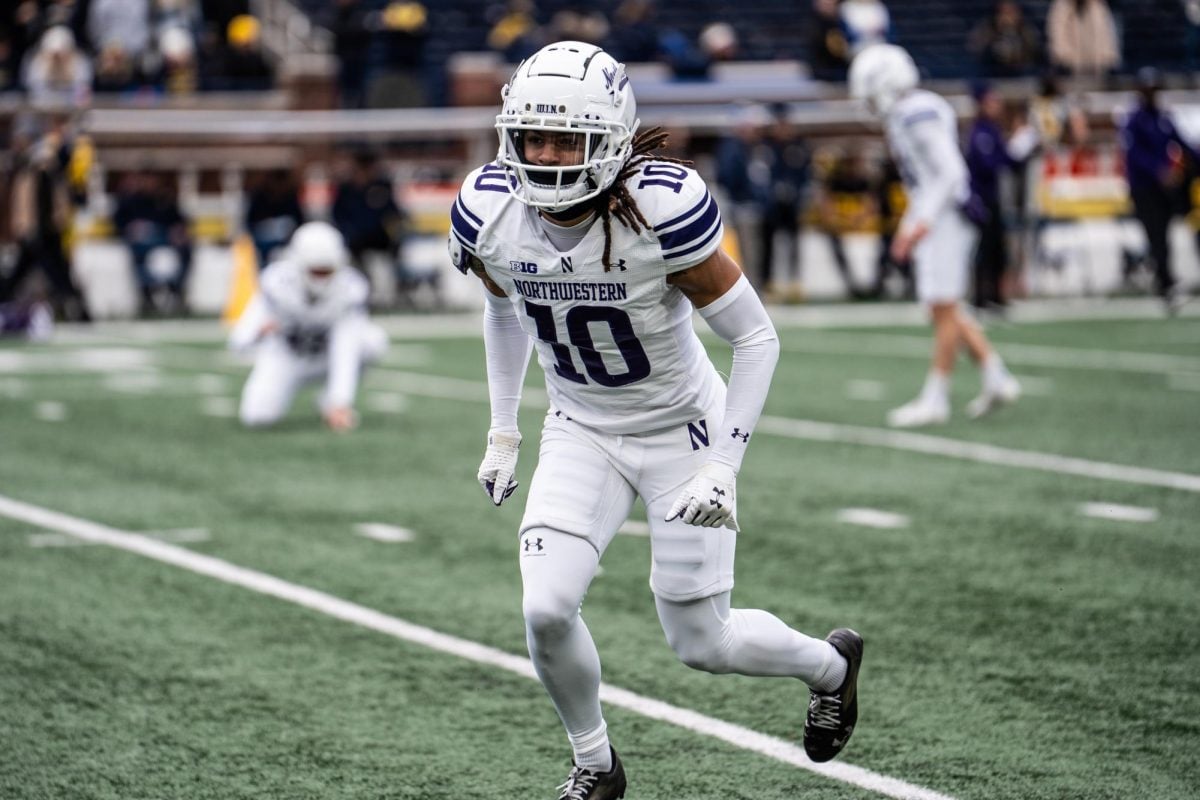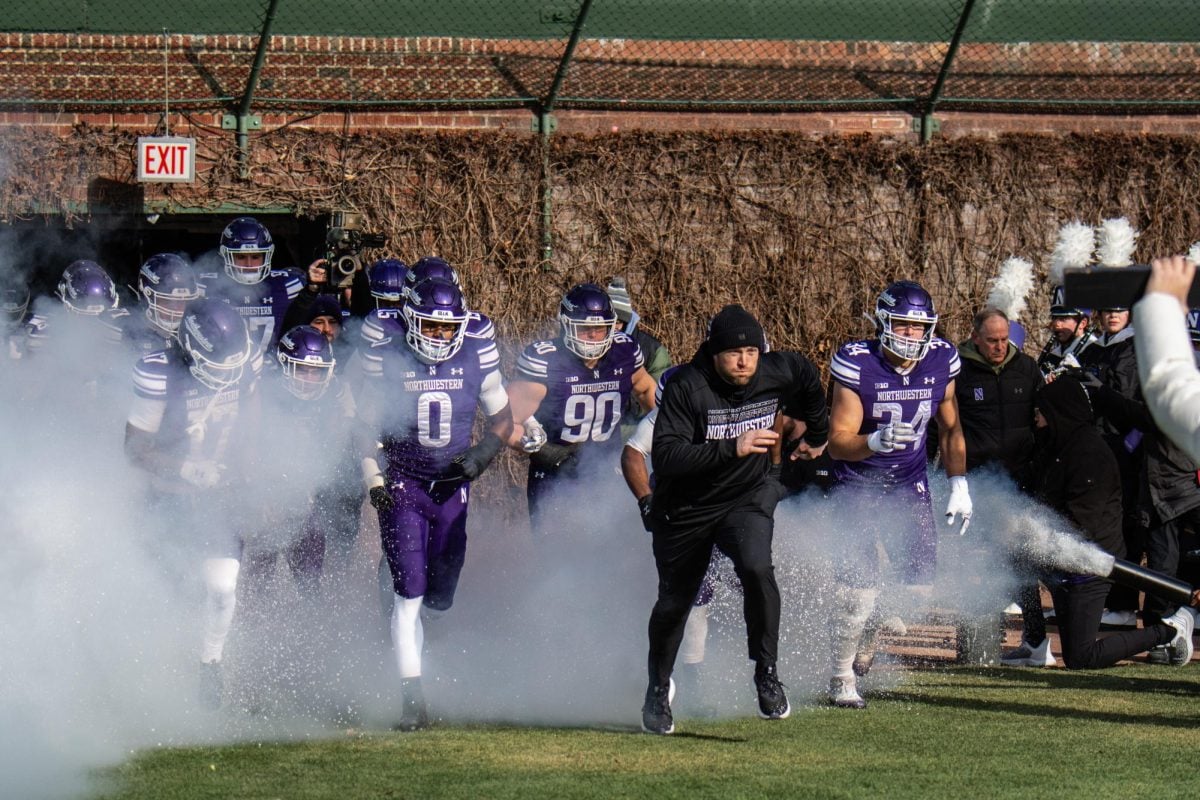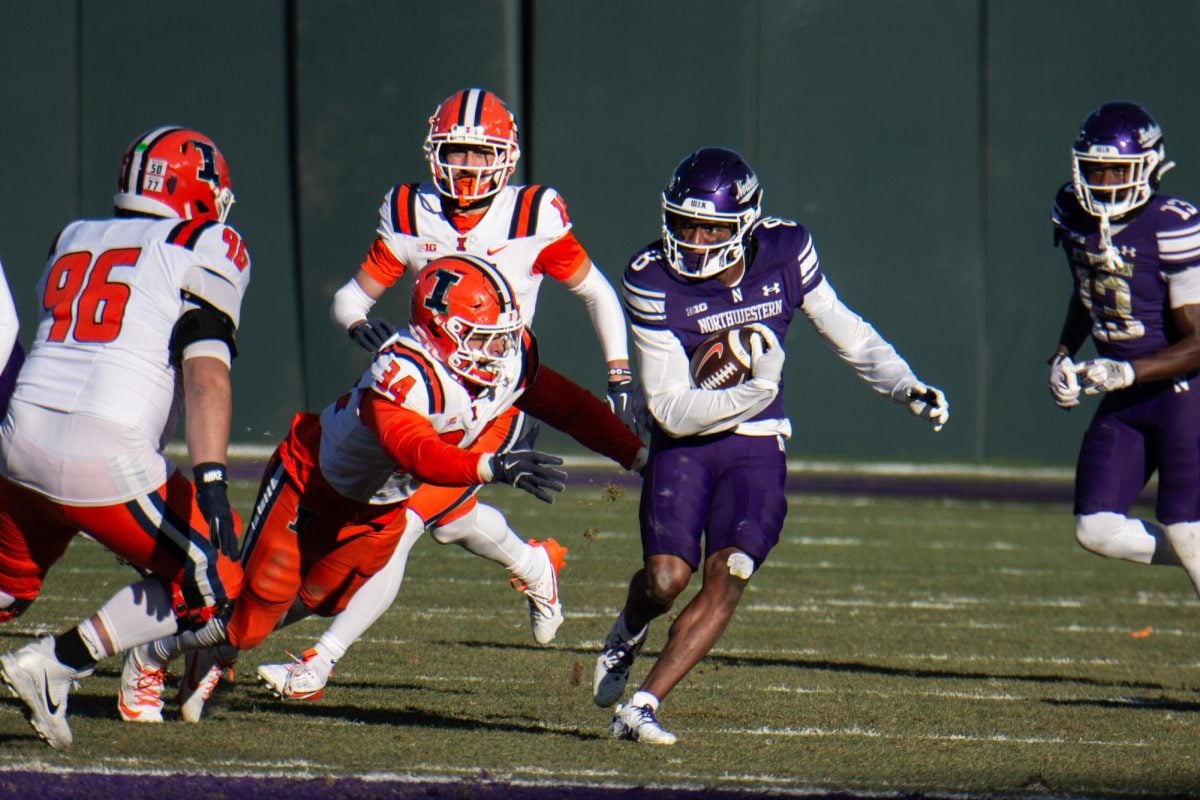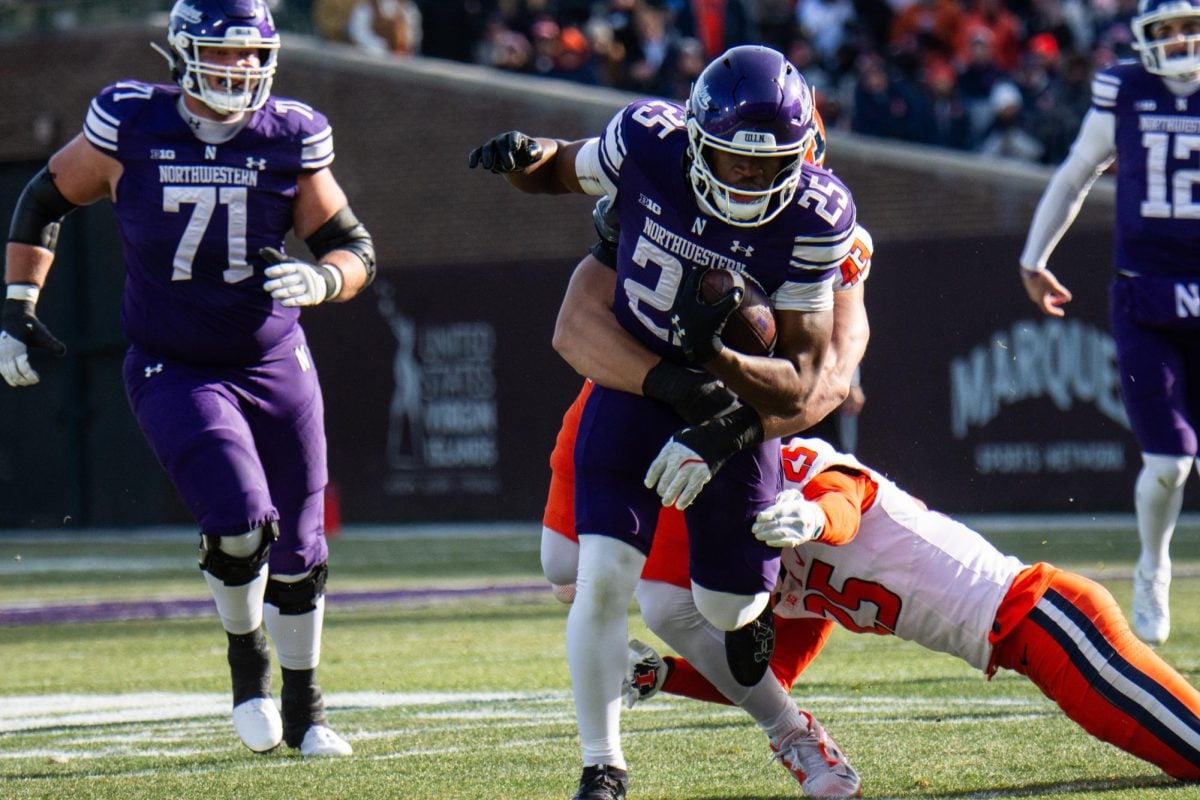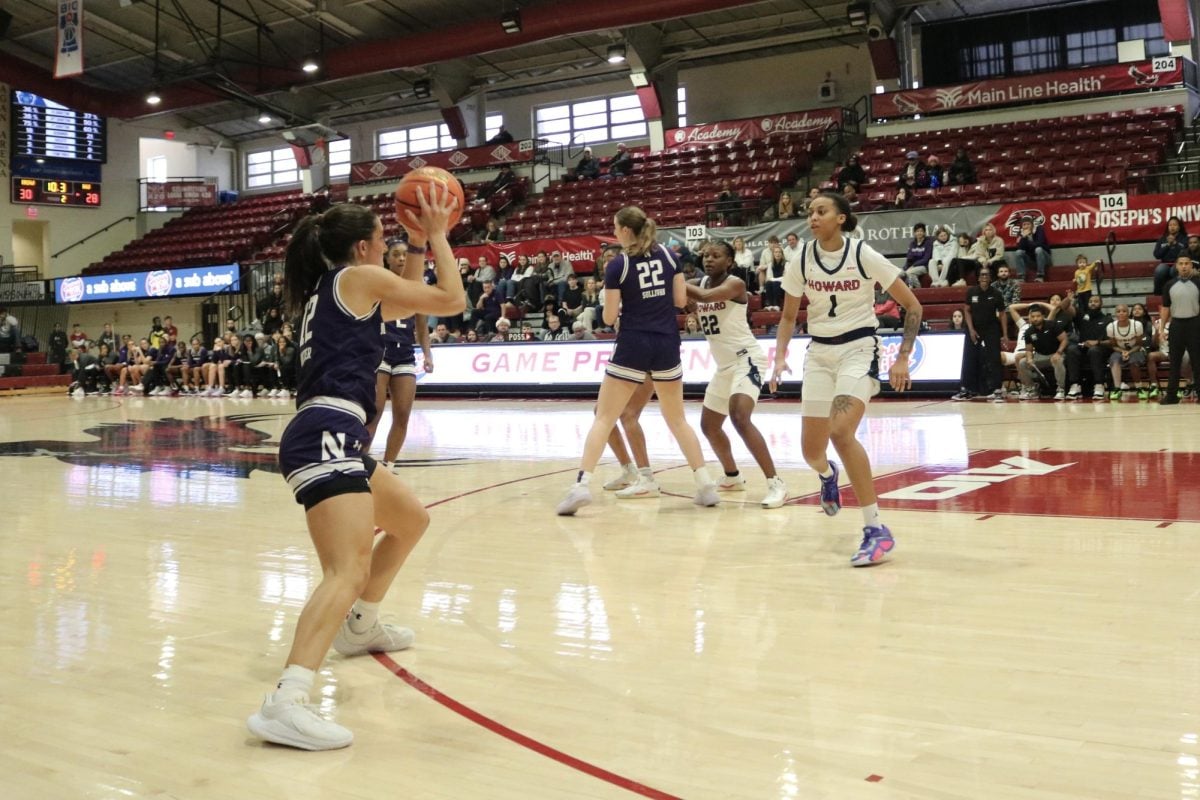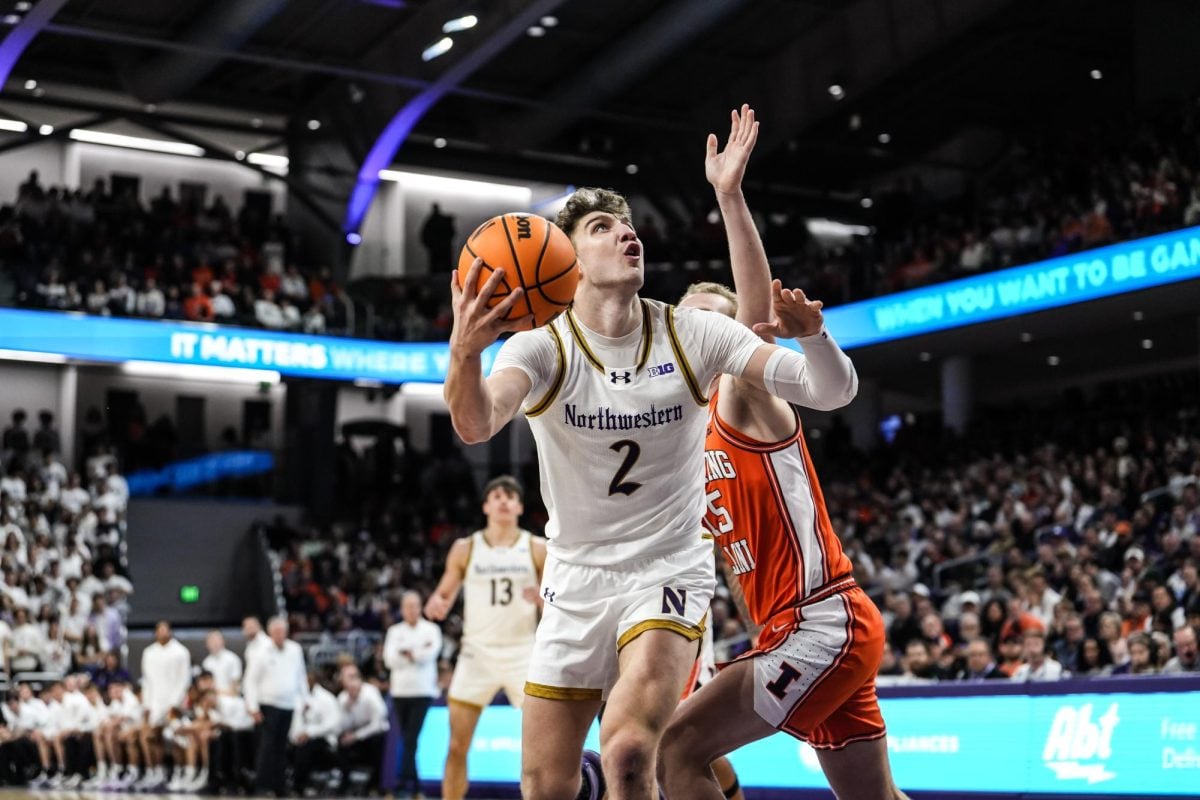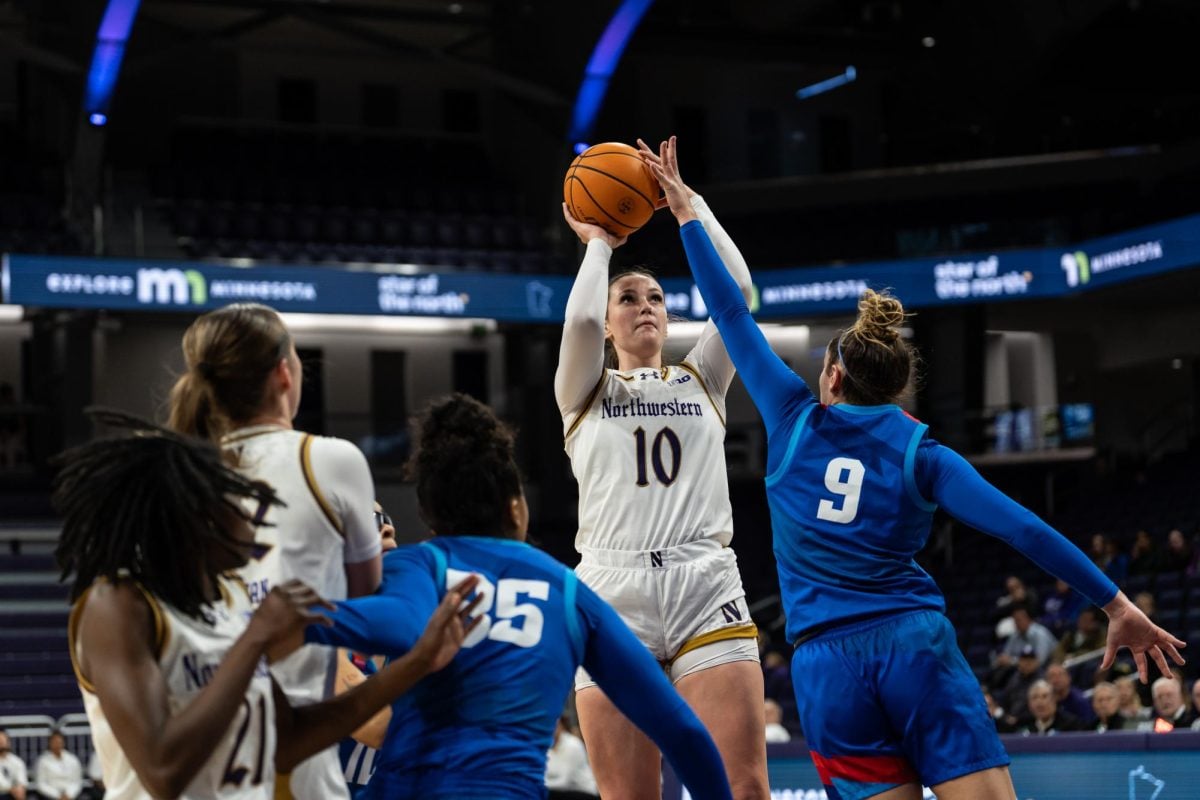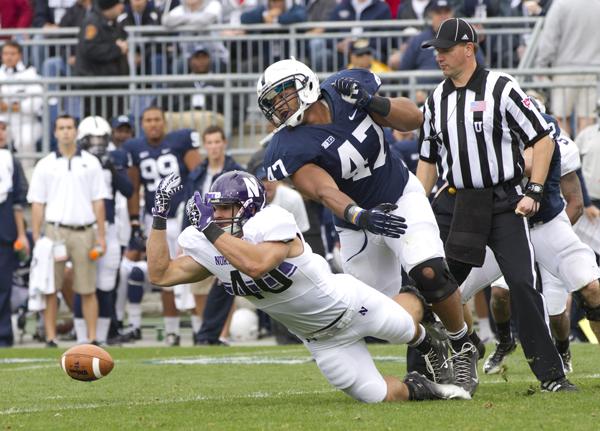
Most schools have tight ends or fullbacks or maybe both. At Northwestern, those two positions are rolled up into one: the superback.
Superbacks do it all for the Wildcats from being extra offensive linemen in the goalline formation to being one of the biggest receiving targets on the field. To define them is difficult to do, but if anyone could, it would be superbacks coach Bob Heffner.
“It’s a tweener between a tight end and a wide receiver and when possible a fullback,” he said. “We’ve got to find a guy that can do that.”
The Cats have had two different types of superbacks the last two seasons. Last year, Drake Dunsmore took home the Kwalick-Clark Award given to the Big Ten tight end of the year and was NU’s second leading receiver. He had more than 500 yards receiving and six touchdowns with 45 catches and was a reliable third-down target for the offense. This season, freshman Dan Vitale won the starting job and has 10 catches for 66 yards with a single touchdown. He has not been used as much in the passing game, but he has still has started six of NU’s nine games this season.
The differences between Dunsmore and Vitale are not as big as the stats would say. Heffner said there are many things Vitale does a lot better than Dunsmore, but that they are trying to not put too much on the freshman’s plate. Offensive coordinator Mick McCall said the Cats have adapted the scheme to the players they have, but the playbook has not changed much, just which aspects are being emphasized.
“Personnel changes every year no matter who you are so you adapt your system to the personnel that you have and then you go play,” McCall said. “But we’re still running the same plays.”
NU’s biggest problem with superbacks is trying to find people that fit the system. The Cats have seven superbacks on their roster, but four of them were recruited to NU for different positions. Sophomore Jack Konopka switched from superback to offensive tackle last season after seeing the field his freshman year as a blocking superback.
Recruiting superbacks is not easy and many of them played different positions in high school. Vitale came in after starring as the halfback for Wheaton-Warrenville South, redshirt freshman Mark Szott played tight end, and Konopka played on the offensive line. Heffner said the coaching staff studies each superback recruit to make sure he fits what they’re looking for at the position.
“We’re looking for a guy who is a thinner tight end or a big wide receiver,” Heffner said. “Somebody who can run, but can still be physical enough at the point of attack. It’s a hard position to find; we need to do a lot of research.”
The Cats seemed to have found a good fit in Vitale. McCall raves about the freshman’s ability to quickly learn from his mistakes and make small improvements each day of practice. McCall correctly stated that each experience for Vitale is a new one for him, but he has handled it well thanks to some great indirect teaching from Dunsmore. The two have never spoken, but Vitale said he watches a lot of film on Dunsmore and tries to pick things up from the former NU star. Vitale said he has learned a lot about blocking techniques from Dunsmore which is beneficial for him because he is one of the smaller superbacks on the team so his blocking technique is important against the larger defensive players he takes on during games.
Vitale is also a good fit because he was essentially a superback during his junior year in high school. When he was being recruited to play superback at NU, Vitale said his experience during his junior year helped him understand what the coaches were asking of him. Coach Pat Fitzgerald said it’s unfair to compare Vitale and Dunsmore, but their skill sets are similar and Vitale has picked up the system.
“He’s learning the system and he’s handling everything that we’ve thrown at him well,” Fitzgerald said. “He’s not only got a bright future in the long term, he’s got a bright future right now.”
The drop in experience from a senior like Dunsmore to a freshman like Vitale is always steep, but for Heffner it is also a more fulfilling experience. He said it may be less stressful for him to coach an experienced player who knows what he’s doing, but he gets more from coaching up the young pup.
“It’s always a little bit easier to coach the veteran,” Heffner said. “But in some ways it’s more rewarding to coach the young guy because he’s so eager. I’ve been coaching 34 years and you get used to (the fact) the players come and go.”

